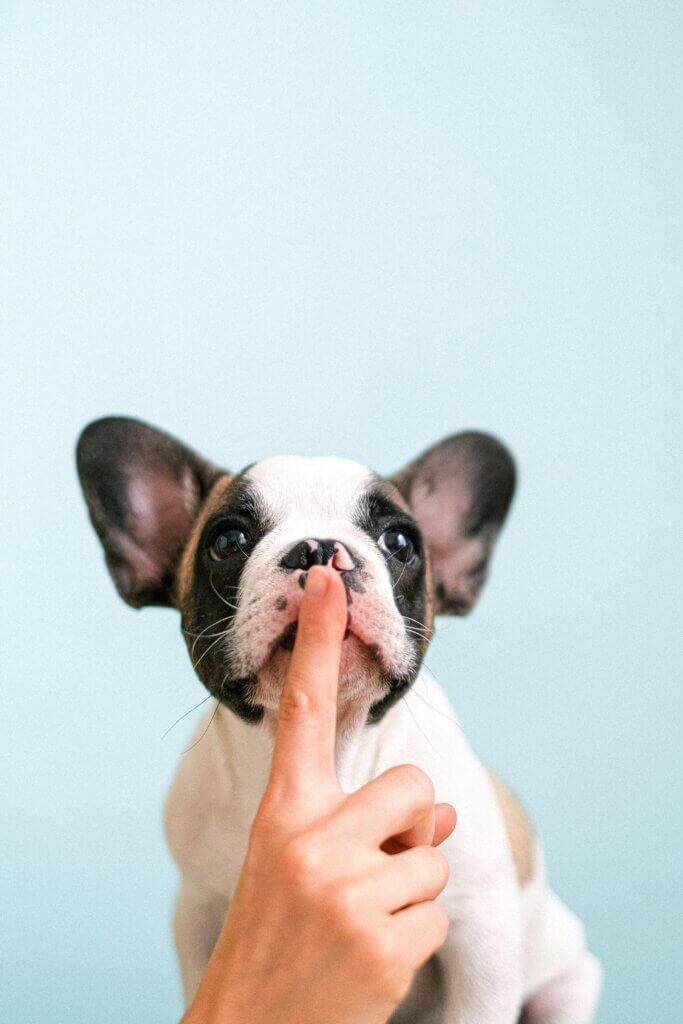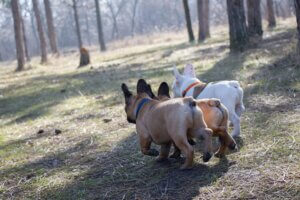Everything You Need to Know About Dog Butt Problems

Most people wouldn’t feel comfortable talking about dog butt problems with dinner guests. Instead, they turn to Google and wind up on this page discussing everything you need to know about dog butt problems.
Just imagine: You are hosting friends for dinner, and your dog decides to make his presence known by scooting his butt across the floor directly in front of your guests.
Oh, the horror!
The first thing dog owners need to know is that dog butt problems are very common. So much so that you probably shouldn’t be embarrassed when your dog scoots, licks, or scratches his butt.
That doesn’t mean you should ignore it. Your dog’s booty antics may be the result of a real problem.
Read on to discover more than you ever thought you needed to know about dog butt problems.
When Dogs Scoot Their Butts
Dogs scoot, or drag their butts, across the floor for several reasons.
The main reason they do so is because they are uncomfortable and trying to rid themselves of that discomfort.
The most common reason a dog scoots their butt is because of anal sac issues.
Dogs have two anal sacs (or glands) on each side of the anus, which release a liquid whenever dogs poop. If these anal sacs become blocked or infected, it will make your dog uncomfortable.
Hence the scooting.
Anal sac issues can be caused by food allergies or dogs’ diets.
AKC explains, “A diet with only one or two types of protein, not enough fiber, or one that contains grains like corn, oatmeal, rice, wheat, or soy can be what’s affecting stools and preventing the anal sacs from functioning properly.”
In addition to anal sac issues, dogs may scoot because the skin around their anus is irritated, such as after a grooming session.
There are also intestinal parasites, such as tapeworms, to worry about.
AKC explains, “[Tapeworms] can cause itching and irritation around the anus when the tapeworms exit after maturing in the stomach. Telltale signs of tapeworms include an itchy bottom, scooting, and rice-like segments of worms around the anus, in your dog’s feces or their bedding.”
And lastly, a dog may scoot his booty simply because he feels dirty down there.
When Dogs Lick Their Butts
Seeing your dog lick their butt may gross you out, but the first thing to understand is that is a normal grooming process for animals.
However, when dogs lick their butts excessively, it’s a sign you are dealing with dog butt problems.
Like scooting, licking their anus is a common sign of anal sac issues.
Additionally, internal parasites and skin infections will also lead to licking.
Similar to scooting, your dog’s diet can be the cause of butt-licking.
Native Pet explains, “Allergies are another possible cause of your dog’s butt-licking behavior. If you’ve noticed your dog licking their butt as well as other parts of the body like the limbs, feet, and torso, allergies are a likely culprit. Food allergies can make your dog’s entire body itchy.”
When Dogs Scratch Their Butts
Scratching goes hand in hand with licking since dogs often use their scratchy tongues to comfort an itch.
However, there are other potential causes of itching beyond those for scooting and licking, such as fleas.
If a dog has fleas, you will notice constant scratching (including butt scratching).
When To Contact Your Veterinarian
While all these behaviors are pretty normal, if your dog is doing them more often than not, it is time to contact your veterinarian.
Here are some other reasons to contact your vet for dog butt problems:
- Discomfort
- Enlarged anal glands
- Bloody discharge
- Suspected parasites
- Redness or inflammation around the anal area
Fortunately, treatment for dog butt problems is usually quick and easy.
How Pooper Scooper Service Can Help
Here is another reason to invest in regular pooper scooper service with Super Scoopers – dog poop can contain parasites. As mentioned above, internal parasites are one of the common reasons for dog butt problems. You don’t want to leave parasite-filled poop in your yard.




